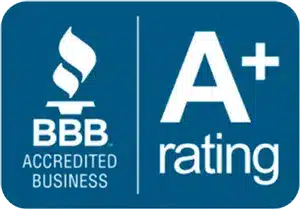Hepatitis C, a viral infection, causes inflammation and long-term damage to your liver. Today, millions of people are infected with chronic hepatitis C virus infection worldwide. In the US alone, there are approximately 17,000 new cases of Hepatitis C every year. With remarkable advancements in modern treatments, Hepatitis C is no longer a burden that you’ll have to carry for the rest of your lives- it is curable. Whether you’ve received a recent diagnosis or have been battling the virus for a while, we at Equality Health are here to help. We are your best choice for easily accessible Hepatitis C treatment in Oklahoma. Are you ready to make well-informed decisions about your health?

Basics of Hepatitis C Treatment In Oklahoma
At Equality Health, the main goal of our Hepatitis C treatment is to achieve a cure, which means clearing the virus from your body. We do so by achieving a sustained virologic response (SVR). SVR is achieved when the Hepatitis C virus is undetectable in your bloodstream for a sustained period, typically 12 weeks or more after completing the treatment. By doing so, we aim to improve your liver health in the long term and reduce the risk of complications in the future.
To achieve SVR, the standard and game-changing Hepatitis C treatment medications are Direct-Acting Antiviral (DAA) drugs. The DAA agents target the virus directly and disrupt its ability to replicate in your body. This method is quite effective and can cure an HCV infection in just 8 to 12 weeks.
We understand that everyone’s journey with Hepatitis C is unique. There are various factors, like the specific strain of the virus, the presence or absence of other liver diseases like liver scarring or, in medical terms, Cirrhosis, and your overall health condition, that influence how your treatment goes. That’s why we customize your treatment plans to your individual needs so that you receive the most effective cure for Hepatitis C. By customizing your treatment; we maximize the chances of your treatment success while also minimizing any potential side effects.
Evaluation and Monitoring
Before beginning your Hepatitis C treatment, our healthcare experts conduct an initial evaluation process to understand your unique situation. Using the results of this evaluation, we will personalize your treatment and boost its efficacy.
- Medical History Assessment: We will first carefully assess your medical history, general health, and current Hepatitis C status. Our experts will ask questions like when you were initially diagnosed with the virus or if you had any prior treatments, the medications you are presently on, and any adverse reactions to them in the past.
- Liver Function Tests: These tests enable us to determine the state of your liver and the degree of Hepatitis C-related inflammation and damage. These tests evaluate your liver’s capacity to make proteins and clot blood, as well as your levels of bilirubin and enzymes. In severe situations, we may need to send you for a liver biopsy to check the extent of liver fibrosis.
- Viral Load Testing: We can determine how much Hepatitis C virus is present in your blood using this test. Viral load testing offers crucial information about the virus strain you are carrying and your potential response to therapy. This test aids in the selection and customization of the best Hepatitis C treatment options for you.
Following the initial evaluation, we make sure to routinely check on your progress while you go through the treatment. We can evaluate the efficacy of the treatment and how you’re responding to it with the help of regular tracking of your treatment progress. To determine how your liver is responding to the treatment, we perform blood tests. Likewise, at follow-up visits, we can answer your queries and worries about the course of treatment. Additionally, we will support you emotionally as you undergo treatment.
At Equality Health, we understand that every person’s experience with Hepatitis C is unique. If we observe that the selected treatment plan is not working effectively to reach the desired viral load, we will make necessary adjustments. We’ll do the same if you experience adverse reactions and side effects. From modifying the medication to altering the doses, we will do everything to achieve optimal results with our Hep C treatment in Oklahoma.
Antiviral Medications for Hepatitis C
Today, Direct-Acting Antiviral (DAA) medications have changed the landscape of Hepatitis C treatment. Here are the different classes of DAA medications:
- Protease Inhibitors: They block the action of an enzyme called protease and prevent the Hepatitis C virus from replicating in the body. Some example medications in this class include Simeprevir and Grazoprevir.
- Polymerase Inhibitors: They incorporate themselves into the RNA chain of the virus and terminate its multiplication in your body. Some common medications in this class include Sofosbuvir and Dasabuvir.
- NS5A Inhibitors: They work by disrupting the virus’s RNA replication in your body and reducing the viral load. Some common examples of medications with NS5A inhibitors are Ledipasvir and Elbasvir.
Despite the fact that DAA medications are quite efficient at treating Hepatitis C, it’s crucial to be aware of any potential side effects. If you encounter any side effects, we will make sure to adjust your treatment plan as necessary. Keep in mind that it’s crucial to take your meds as prescribed and to uphold adherence. Otherwise, the therapy will be less effective and successful.
Treatment Duration and Response Rates of Hepatitis C Treatment
The standard length of hepatitis C treatment varies from patient to patient. While 8 to 12 weeks is the normal treatment duration, each person’s needs are unique. These listed variables have a significant impact on the length of your treatment:
- Past Treatment History: We will need to modify your present treatment plan if you previously had a Hepatitis C treatment regimen and it wasn’t effective. Because of the treatment plan modifications, your treatment duration could be longer.
- Stage of Liver Fibrosis: A crucial factor that influences the duration of your treatment is the degree of fibrosis in your liver. If you have a high degree of liver Fibrosis or even have Cirrhosis, which is an advanced liver disease, you may need a longer treatment for the successful curing of the infection.
- Presence of Other Medical Conditions: The length of your treatment will vary based on any medical issues you have, such as diabetes and heart disease. To avoid any adverse side effects, our healthcare providers will consider your medical issues before starting treatment.
At Equality Health, we properly consider these factors to ensure you get a suitable treatment plan to achieve SVR, the ultimate goal of the treatment. Achieving SVR not only indicates that the treatment is successful, but it also improves your liver health and prevents the transmission of the virus. Moreover, it also reduces the chances of health complications in the future.
By using the DAA medications to treat Hepatitis C, we have achieved remarkable success rates. These medications have helped us achieve 95 to 99 percent of initial cure rates. With such amazing results, our treatment plans offer you the hope of a cure for the virus.
Adherence and Supportive Care for Hep C in Oklahoma
Adherence is of supreme importance when it comes to Hepatitis C treatment. Only by maintaining adherence can you achieve SVR and also reap the benefits of improved liver health in the long term. That’s why you must take all your medications as prescribed and never miss doses. Moreover, with consistent adherence, you can also prevent the development of drug resistance and minimize potential side effects.
Here are a few strategies and tips for maintaining adherence during your treatment:
- Establish a daily routine to take your medications every day at the same time.
- Set up reminders on your phone to remember to take your medications.
- Ask your loved ones for reminders and encouragement.
- Always plan ahead if your schedule is going to change or you’re traveling.
- Always carry extra doses when you’re going out or traveling.
- Visit your healthcare provider regularly for follow-ups.
At Equality Health, we have various supportive care services as part of our Hepatitis C treatment in Oklahoma. With services like mental health support and counseling, our goal is to provide you with emotional and psychological support while you undergo your treatment.
Potential Hep C Side Effects and Management Strategies
The typical adverse effects of Hepatitis C treatment vary from person to person, depending on the precise medicine used in your treatment plan. However, the following negative effects could occur:
- Fatigue
- Nausea, Diarrhea, or constipation
- Skin rashes
- Hair loss
- Headache
- Anemia
- Sleep issues
- Depression
To manage these adverse side effects, you can:
- Create a regular sleeping pattern.
- Light exercise can help you fight exhaustion.
- Take medication for headaches after speaking with your healthcare practitioner.
- Ensure to take the medicines with food each time.
- Eat frequently and avoid going extended periods without food.
- Eat a diet full of fiber and stay hydrated.
We want you to keep in mind that despite these strategies, if your side effects are severe, persistent, or make your daily tasks difficult, you must seek medical attention. Feel free to communicate openly with our experts. They will provide guidance and adjust your treatment plans as necessary.
Treatment Outcomes and Long-term Follow-up
Follow-up visits after treatment play a crucial role in ensuring optimal liver health in the long term if you’ve achieved a cured status from Hepatitis C. Although SVR ensures that your treatment is successful, it doesn’t necessarily mean that there won’t be any health concerns in the future. Ongoing care and surveillance are absolutely essential to monitor your liver’s condition, catch signs of liver disease early, and prevent complications in the future.
Furthermore, we cannot stress enough how crucial it is to keep a healthy lifestyle to enhance your general well-being. So, always maintain a healthy diet, exercise frequently, and abstain from drugs and alcohol. You could still contract the hepatitis C virus even after being treated. It is crucial to protect your health by developing healthy habits.
Contact Equality Health For Hepatitis C Treatment In Oklahoma
If you are looking for Hepatitis C treatment in Oklahoma, Equality Health is your best choice. Achieving a Hepatitis C-free future is possible with our extensive treatment plans and highly experienced healthcare experts. Don’t wait any longer to take the leap toward better liver health. Along with Hepatitis C testing and treatment, we also offer STD testing, HIV testing, and HIV treatment in Oklahoma.
Contact us or call our Hepatitis C treatment center at (405) 761-2762 to get started on your path to a better tomorrow! We offer our services in Edmond, Moore, Norman, and Oklahoma City.
Frequently Asked Questions (FAQs)
You can get the best Hepatitis C treatment in Oklahoma at Equality Health. We have a team of experienced Hepatitis C treatment healthcare professionals to provide you with personalized care and support. Before starting any treatment, we ensure that it suits you by considering your overall health and medical history. We conduct regular monitoring and follow-up visits during and after your treatment to maintain your progress in the long run.
Here are the things that we include in our Hepatitis C treatment
- Direct-acting antiviral (DAA) medications,
- Blood tests to assess treatment progress,
- Liver function tests to assess liver health,
- Counseling and support, &
- Regular monitoring of treatment progress,
- Follow-up visits.
Yes, Hepatitis C can be treated effectively and cured in its early stages. Direct-acting antiviral (DAA) treatment is quite successful in the initial stages. These drugs help in achieving sustained virologic response (SVR) by lowering the viral load in your bloodstream to undetectable levels. Early on, the cure rate for hepatitis C frequently surpasses 95%. It is important to note that the treatment plans vary depending on the virus strain you have and your general health. However, the early stages of Hepatitis C can be cured by diligently taking medications as advised.
In Oklahoma, hepatitis C treatment typically lasts 8 to 12 weeks. However, based on the following variables, it varies from person to person:
- The kind of drugs prescribed during treatment,
- The strain or genotype of the virus,
- How do you respond to the treatment,
- Presence of liver disease like Cirrhosis,
- Your overall health condition.
Individuals seeking financial support for Hepatitis C (Hep C) treatment can explore options including Medicaid (eligible for low-income individuals), Patient Assistance Program, Federally Qualified Health Centres (FQHCs), Community Health Centres, and Private Health Insurance Coverage. Contact Equality Health for assistance in enrolling in any of these patient assistance programs.


